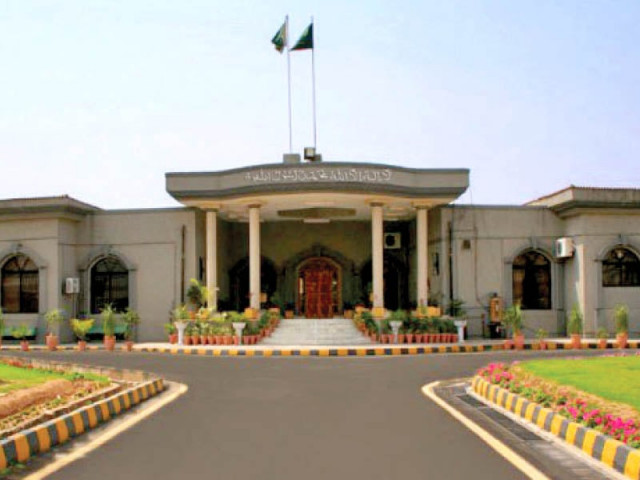IHC calls for using modern technology in courts
Orders registrar to ask competent authority for framing rules for recording evidence via video link

The Islamabad High Court (IHC) has instructed its registrar to ask the competent authority for framing rules for recording of evidence through video conferencing and utilization of modern techniques in courts.
IHC Chief Justice Aamer Farooq on Wednesday issued his 14-page detailed verdict on a petition filed by Pakistan Tehreek-e-Insaf (PTI) chief and former prime minister Imran Khan, who is facing dozens of criminal cases in courts in different parts of the country.
In his petition, Imran had requested the IHC to direct the relevant authorities to make arrangements for his participation and appearance in all cases—within the jurisdiction of the IHC or under the administrative arrangements of the state anywhere in the country—through video-link.
“In the alternative, as regards cases in the Islamabad Capital Territory, the respondents may kindly be directed to conduct hearings at the Federal Judicial Complex at such times as are likely to cause minimal disruption to other judicial work,” the petitioner added.
While disposing of the petition, the IHC chief justice noted that Pakistan’s criminal justice system is in dire need of re-engineering its processes, optimizing the use of human resources and bringing about the changes in the law to utilize information and communications technology to its maximum.
“The changes in law and the rules with said purpose in mind will and can revolutionize the justice system and improve not only the quality of judgments but also the quantity and will enable the courts in expeditious dispensation of justice.
The court noted that modern technologies are being put to use for dispensation of justice in various judicial systems, especially in the west and also has seen progress in leaps and bounds across the border where laws are quite similar to that of Pakistan.
“It is unfortunate that to make laws compatible with development in the modern technologies qua information and communications has failed to attract the attention of our legislature in general and even the Law and Justice Commission of Pakistan in particular.”
The court said modern means of communications like the internet are readily available in all major cities of Pakistan. However, these means are not being used properly in courts.
“We, as a country cannot remain ignorant of the fact that the future lies in adoption of modern information and communications technologies; rather in days to come artificial intelligence can and would bypass human resources as well.
“The government of the day and all the future governments as well as the Law and Justice Commission of Pakistan on urgent basis need to put all endeavors in making the judicial system in general and criminal justice system in particular compatible with modern technology,” it added.
The court noted that in any criminal investigation, it is not essential for the police or investigating agency to arrest an accused. Summons/warrants for appearance can be issued to any person for his attendance to cooperate in the investigation.
It said an investigating agency may arrest an accused without warrants if the offence is cognizable and when sufficient material is available, which justifies the arrest of the accused person. However, such agencies can make an arrest only after obtaining warrants if the offense is non-cognizable.
Citing a Supreme Court ruling, the IHC, however, observed that Section 498-A Code of Criminal Procedure (CrPC) created a statutory fetter or a statutory precondition requiring the presence of the accused in person in a court for granting pre-arrest bail. An accused is also bound to appear in a court on the day of unveiling of a verdict, it added.


















COMMENTS
Comments are moderated and generally will be posted if they are on-topic and not abusive.
For more information, please see our Comments FAQ